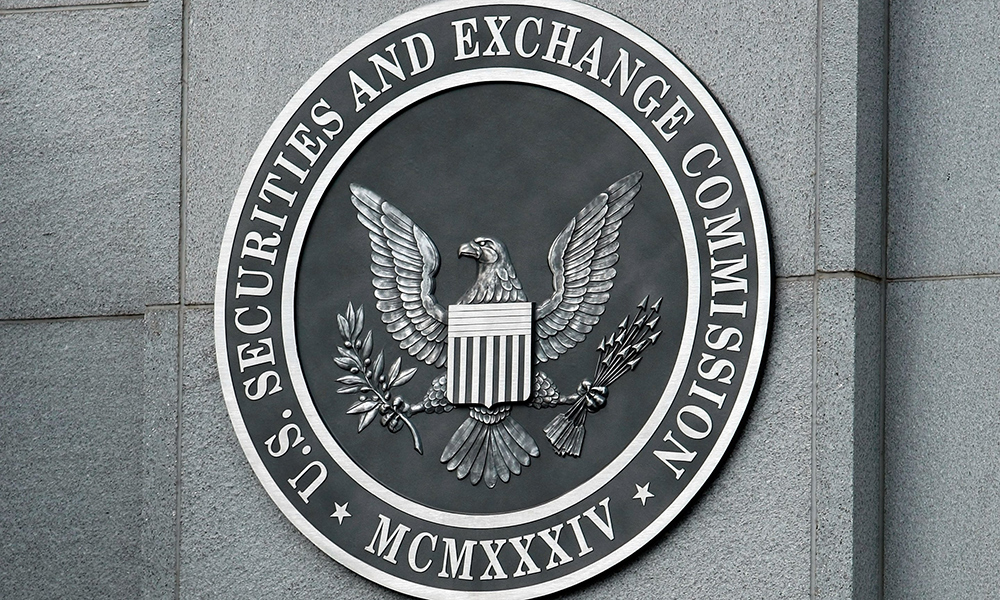
美国证券交易委员会(Securities and Exchange Commission)的成立基于透明、公平、完全披露和稳定监管的原则,会考虑其监管对经济的影响和投资者的福利。笔者在职业初期任职于证券交易委员会期间,一直努力拥护这些原则。
但在数字资产方面,美国证券交易委员会却迷失了方向。作为币安美国(Binance.US)的临时CEO和Ripple的前总法律顾问,笔者对此深有感触。
美国证券交易委员会试图在没有国会或法院授权的情况下,越界管辖数字资产。它没有与立法者和相关部门合作制定综合监管制度,没有经过审慎的成本效益分析和公开意见征集后制定的规则,而是以一次性执法案例证明其管辖权,却让美国经济付出沉重代价,使该机构的可信度受到影响。证券交易委员会不应该以这种方式应对新出现的创新金融工具和技术。
就连证券交易委员会委员伊兰德·罗斯曼也曾谴责该机构“明显没有向市场参与者说明证券法律是否适用于数字资产和相关交易”。对于证券交易委员会通过执法程序而不是规则制定过程,对现有法律法规进行重新解释的做法,证券交易委员会委员马克·乌耶达和赫斯特·皮尔斯也表示谴责。
在美国国会,众议院金融服务委员会(House Financial Services Committee)委员批评证券交易委员会对加密货币的监管方式,导致该行业“没有清晰的规则”。此外,该行政部门尚未决定什么是数字资产,而其他监管机构均认为数字资产不属于证券。但证券交易委员会的现任领导者并没有听取这些意见,而是决定不开展有意义的对话或者寻找中间立场。
证券交易委员会现任主席在早前出席国会听证会时,曾表示他领导的机构对加密货币没有监管权,并要求国会授权。但之后他却没有任何解释就放弃了这种立场,反而声称最高法院80年前的一次裁定足以让他全权监管这个规模高达数万亿美元且有五分之一美国人参与的新行业。
证券交易委员会主席的态度令联邦法院感到困惑。正如美国地方法官凯瑟琳·菲尔拉所说:“我只想弄清楚,这个行业的参与者如何知道,他们参与投资的某项加密货币资产,未来不会被证券交易委员会认定为证券。”
此外,现在试图逼迫数字资产实体破产的证券交易委员会,曾经批准了Coinbase上市。但不到18个月后,证券交易委员会却声称该公司是非法的。这意味着证券交易委员会允许数以百万计的投资者购买了一家非法公司价值数十亿美元的股份。投资者保护呢?几乎不存在。
证券交易委员会还对笔者所在的公司币安美国和币安(Binance. com)采取了执法行动,指控公司违反了证券法。美国还有其他多个监管部门对币安提起了诉讼,现在诉讼已经解决。虽然其他部门提起的诉讼中并没有提到币安美国,但我们意识到,我们必须重新树立客户和监管部门的信任。我们强烈质疑证券交易委员会的指控,我们认为这些指控没有成文法和事实作为依据。
幸运的是,证券交易委员会还有一些补救措施。
首先,提供公平的通告。在游戏实际开始之前,发布行业的游戏规则。
其次,放弃以摧毁加密货币为目的的所有武断和任性的做法。现在,数字资产行业不可能遵守现有法规。当证券交易委员会的领导者可以任性修改法律时,行业参与者该如何遵守法律?
第三,承认数字资产行业是美国经济的重要参与者,并与国会合作设计有效的监管框架。
与此同时,笔者所在的公司和行业决定继续抗争。数字资产带来的好处以及为打击数字资产滥用监管权力的影响至关重要,必须做出反抗。同样重要的是,美国人有反对政府越权的传统。我很自豪能发扬这个传统。(财富中文网)
本文作者诺曼·里德为币安美国临时CEO,之前曾担任Omgeo有限责任公司、Ripple、Carta、Nanopay和Onsa的总法律顾问,曾在证券交易委员会和纽约联邦储备银行(Federal Reserve Bank of New York)负责市场监管和执法。
Fortune.com上发表的评论文章中表达的观点,仅代表作者本人的观点,不能代表《财富》杂志的观点和立场。
译者:刘进龙
审校:汪皓
美国证券交易委员会(Securities and Exchange Commission)的成立基于透明、公平、完全披露和稳定监管的原则,会考虑其监管对经济的影响和投资者的福利。笔者在职业初期任职于证券交易委员会期间,一直努力拥护这些原则。
但在数字资产方面,美国证券交易委员会却迷失了方向。作为币安美国(Binance.US)的临时CEO和Ripple的前总法律顾问,笔者对此深有感触。
美国证券交易委员会试图在没有国会或法院授权的情况下,越界管辖数字资产。它没有与立法者和相关部门合作制定综合监管制度,没有经过审慎的成本效益分析和公开意见征集后制定的规则,而是以一次性执法案例证明其管辖权,却让美国经济付出沉重代价,使该机构的可信度受到影响。证券交易委员会不应该以这种方式应对新出现的创新金融工具和技术。
就连证券交易委员会委员伊兰德·罗斯曼也曾谴责该机构“明显没有向市场参与者说明证券法律是否适用于数字资产和相关交易”。对于证券交易委员会通过执法程序而不是规则制定过程,对现有法律法规进行重新解释的做法,证券交易委员会委员马克·乌耶达和赫斯特·皮尔斯也表示谴责。
在美国国会,众议院金融服务委员会(House Financial Services Committee)委员批评证券交易委员会对加密货币的监管方式,导致该行业“没有清晰的规则”。此外,该行政部门尚未决定什么是数字资产,而其他监管机构均认为数字资产不属于证券。但证券交易委员会的现任领导者并没有听取这些意见,而是决定不开展有意义的对话或者寻找中间立场。
证券交易委员会现任主席在早前出席国会听证会时,曾表示他领导的机构对加密货币没有监管权,并要求国会授权。但之后他却没有任何解释就放弃了这种立场,反而声称最高法院80年前的一次裁定足以让他全权监管这个规模高达数万亿美元且有五分之一美国人参与的新行业。
证券交易委员会主席的态度令联邦法院感到困惑。正如美国地方法官凯瑟琳·菲尔拉所说:“我只想弄清楚,这个行业的参与者如何知道,他们参与投资的某项加密货币资产,未来不会被证券交易委员会认定为证券。”
此外,现在试图逼迫数字资产实体破产的证券交易委员会,曾经批准了Coinbase上市。但不到18个月后,证券交易委员会却声称该公司是非法的。这意味着证券交易委员会允许数以百万计的投资者购买了一家非法公司价值数十亿美元的股份。投资者保护呢?几乎不存在。
证券交易委员会还对笔者所在的公司币安美国和币安(Binance. com)采取了执法行动,指控公司违反了证券法。美国还有其他多个监管部门对币安提起了诉讼,现在诉讼已经解决。虽然其他部门提起的诉讼中并没有提到币安美国,但我们意识到,我们必须重新树立客户和监管部门的信任。我们强烈质疑证券交易委员会的指控,我们认为这些指控没有成文法和事实作为依据。
幸运的是,证券交易委员会还有一些补救措施。
首先,提供公平的通告。在游戏实际开始之前,发布行业的游戏规则。
其次,放弃以摧毁加密货币为目的的所有武断和任性的做法。现在,数字资产行业不可能遵守现有法规。当证券交易委员会的领导者可以任性修改法律时,行业参与者该如何遵守法律?
第三,承认数字资产行业是美国经济的重要参与者,并与国会合作设计有效的监管框架。
与此同时,笔者所在的公司和行业决定继续抗争。数字资产带来的好处以及为打击数字资产滥用监管权力的影响至关重要,必须做出反抗。同样重要的是,美国人有反对政府越权的传统。我很自豪能发扬这个传统。(财富中文网)
本文作者诺曼·里德为币安美国临时CEO,之前曾担任Omgeo有限责任公司、Ripple、Carta、Nanopay和Onsa的总法律顾问,曾在证券交易委员会和纽约联邦储备银行(Federal Reserve Bank of New York)负责市场监管和执法。
Fortune.com上发表的评论文章中表达的观点,仅代表作者本人的观点,不能代表《财富》杂志的观点和立场。
译者:刘进龙
审校:汪皓
The Securities and Exchange Commission was founded on principles of transparency, fairness, full disclosure, and stable regulation, taking into account the economic impact of its regulations and the well-being of investors. It is these principles that I sought to uphold during my tenure at the SEC earlier in my career.
Yet with regard to digital assets, the SEC has lost its way. This has become clear to me in my current role as interim CEO of Binance.US and through my prior experience as general counsel of Ripple.
The SEC is attempting a jurisdictional land grab of digital assets when no such thing has been authorized by Congress or by the courts. Instead of working with legislators and agencies to put in place a comprehensive regulatory scheme—rules adopted after prudent cost-benefit analyses and public comments—the SEC is bringing one-off enforcement cases to mark its territory at tremendous cost to the U.S. economy and the agency’s credibility. This is not the way the SEC should be addressing new, innovative financial instruments and technologies.
Even SEC Commissioner Elad Roisman has decried the “decided lack of clarity for market participants around the application of securities laws to digital assets and their trading.” And SEC Commissioners Mark Uyeda and Hester Perice have condemned the development of new interpretations of existing statutes and rules through the enforcement process rather than rulemaking.
In Congress, members of the House Financial Services Committee have criticized the SEC’s approach to crypto as leaving the industry “without clear rules of the road.” Elsewhere, the executive branch has not yet decided what digital assets are, and other regulators all characterize digital assets as something other than securities. But instead of listening, current SEC leadership has determined not to engage in meaningful dialogue or find a middle ground.
In his early hearings before Congress, the current SEC chairman himself stated that his agency didn’t have the power to regulate crypto, and he asked Congress to provide that power. Since then, he’s abandoned that position without any kind of explanation, and has made the claim that language in an 80-year-old Supreme Court decision is enough for him to entirely regulate a new industry valued in the trillions of dollars and in which 1 in 5 Americans has participated.
The chairman’s approach has baffled federal courts. As U.S. District Judge Katherine Failla stated: “I am just trying to figure out how folks involved in the industry can know that a particular crypto asset with which they are involved is not going to be found at some later date by the Commission to be a security.”
Moreover, the same SEC that now attempts to drive digital assets entities out of business gave express permission to Coinbase to go public. Yet less than 18 months later, the SEC alleges that that very same business is illegal. That means the SEC allowed millions of investors to purchase billions of dollars of shares in an illegal business. Investor protection? Hardly.
The SEC has also brought an enforcement action against my company, Binance.US, as well as Binance.com for alleged violations of securities laws. Separately, multiple other U.S.-based regulators also brought lawsuits against Binance.com that it’s now resolved. While Binance.US was not named in these other actions, we recognize we must work to reestablish the trust of our customers and regulators. We are vehemently disputing the SEC’s charges, however, which we believe are not supported by settled law or the facts of this case.
Fortunately, there are remedies to which the SEC can turn.
First, provide fair notice. Give the industry the rules of the game before the game actually begins.
Second, abandon all arbitrary and capricious efforts to kill crypto. Today, it is impossible for the digital asset industry to comply with current regulations. How are industry participants to follow the law if it changes on the whims of the SEC’s leadership?
Third, recognize that the digital asset industry is a major player in the American economy and work with Congress to design effective regulatory framework.
In the meantime, my company and industry are determined to continue the fight. The benefits provided by digital assets, and the impact of the regulatory abuses used against them, are too important not to address head on. Equally important is the American tradition of standing up to government overreach. I proudly count myself as part of that tradition.
Norman Reed, interim CEO of Binance.US, previously served as general counsel at Omgeo LLC, Ripple, Carta, Nanopay, and Onsa, having earlier worked in market regulation and enforcement at the SEC and at the Federal Reserve Bank of New York.
The opinions expressed in Fortune.com commentary pieces are solely the views of their authors and do not necessarily reflect the opinions and beliefs of Fortune.






